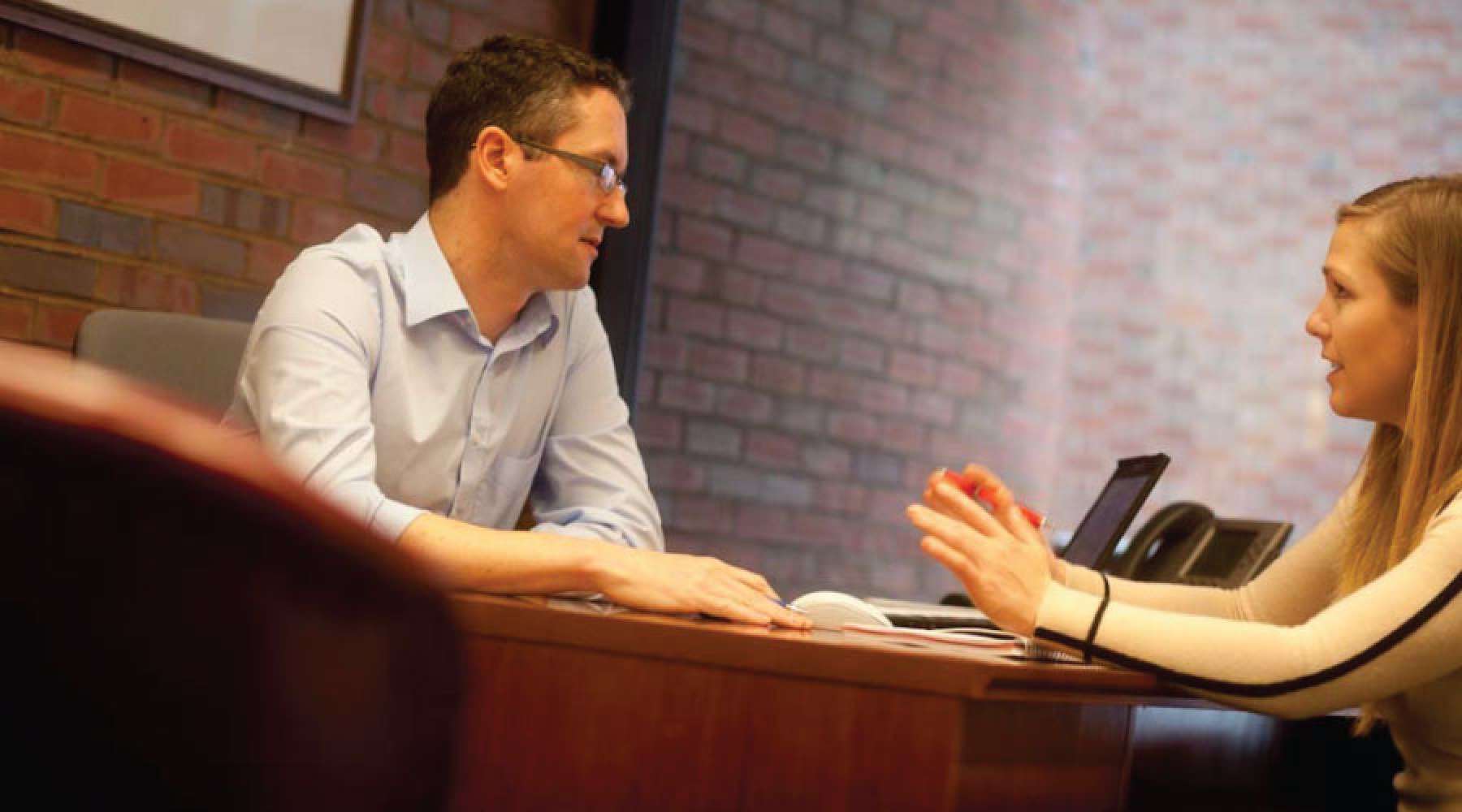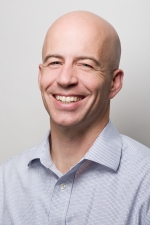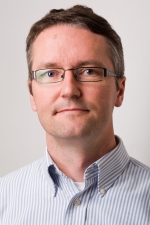

 Jonathan Masland is director of Tuck’s Career Development Office (CDO). Stephen Pidgeon T’07 is an associate director of the CDO and author of the books How to Get a Job in Consulting and Case Interviews for Beginners.
Jonathan Masland is director of Tuck’s Career Development Office (CDO). Stephen Pidgeon T’07 is an associate director of the CDO and author of the books How to Get a Job in Consulting and Case Interviews for Beginners.
JM: Two come to mind right off the bat. First: earlier-stage technology companies—think the Facebooks from five years ago. Second: luxury and consumer goods with new business models. A big area now is rethinking how people purchase traditional items online, like Warby Parker for eyeglasses or Harry’s for shaving.
SP: Healthcare is big at the moment, too. People are very aware it’s one of the big societal problems facing the US, and I see a lot of students who say they want to put their MBA skills to helping solve it. That could be everything from managing a hospital group to working at company like CVS that’s reimagining the way that people get healthcare to joining a startup based around some exciting new science, device, or therapy.
JM: We’re also seeing more people look at energy broadly, like with companies touching sustainability, like Opower and EnerNOC, or new ways of creating power with companies like Ogin or Bloom Energy. Also, we’ve seen real estate come back into vogue after the huge bust.
SP: An emerging theme among our alumni is how they are revolutionizing industries with their MBA skills that haven’t traditionally made use of them, especially when it comes to analytics. The professional sports and entertainment industries are great examples. It’s no longer a grizzled manager or a cigar-smoking mogul going on gut feelings anymore—analytics and data drive success now.
JM: Whatever new paths they’re exploring, it’s really inspiring to see so many alumni excited about having an impact on all kinds of industries. Good luck and happy trailblazing!
SP: Start by learning what else is out there. It’s easy to get so overwhelmed—in a good way—by the volume of opportunities available to Tuck grads that you don’t bother to look beyond them. But if you’re looking to switch careers or try something new, why not take advantage of the incredible network of alumni, staff, friends, and classmates you’ve got here at Tuck?
JM: That’s a great point. All of your activities as an MBA can support your switch to a new career, including participating in case competitions; crafting independent studies and experiential learning projects focused on the career you want to join; and talking to all the alumni and recruiters you can, both here at Tuck and on career treks.
SP: Once you’ve decided to switch careers, tell everyone. Even if speakers or companies or alumni can’t immediately help you, you never know when they’ll spot an opening or meet someone at a conference and they’ll remember the student who wanted to do that particular thing and reach out to you. Don’t be shy about what your goals are.
JM: You can also learn so much from alumni and others who’ve successfully made the switch you’re attempting. Reach out to people with similar backgrounds and see how they did it and what they can teach you.
SP: It’s important, too, that you have a good understanding of what it will take for you to get where you want. Just because it may not be a one-step process doesn’t mean it’s impossible. The sooner you map out what you need to do, the sooner you can start planning and positioning yourself.
JM: Treat this transition as a long-term switch you’re committed to, not just something you’re trying out. If you are making a significant switch, the more focus, time, knowledge, and resources you can dedicate to this new career, the better off you’ll be. Good luck and happy career-switching!
(Photo above by Laura DeCapua.)